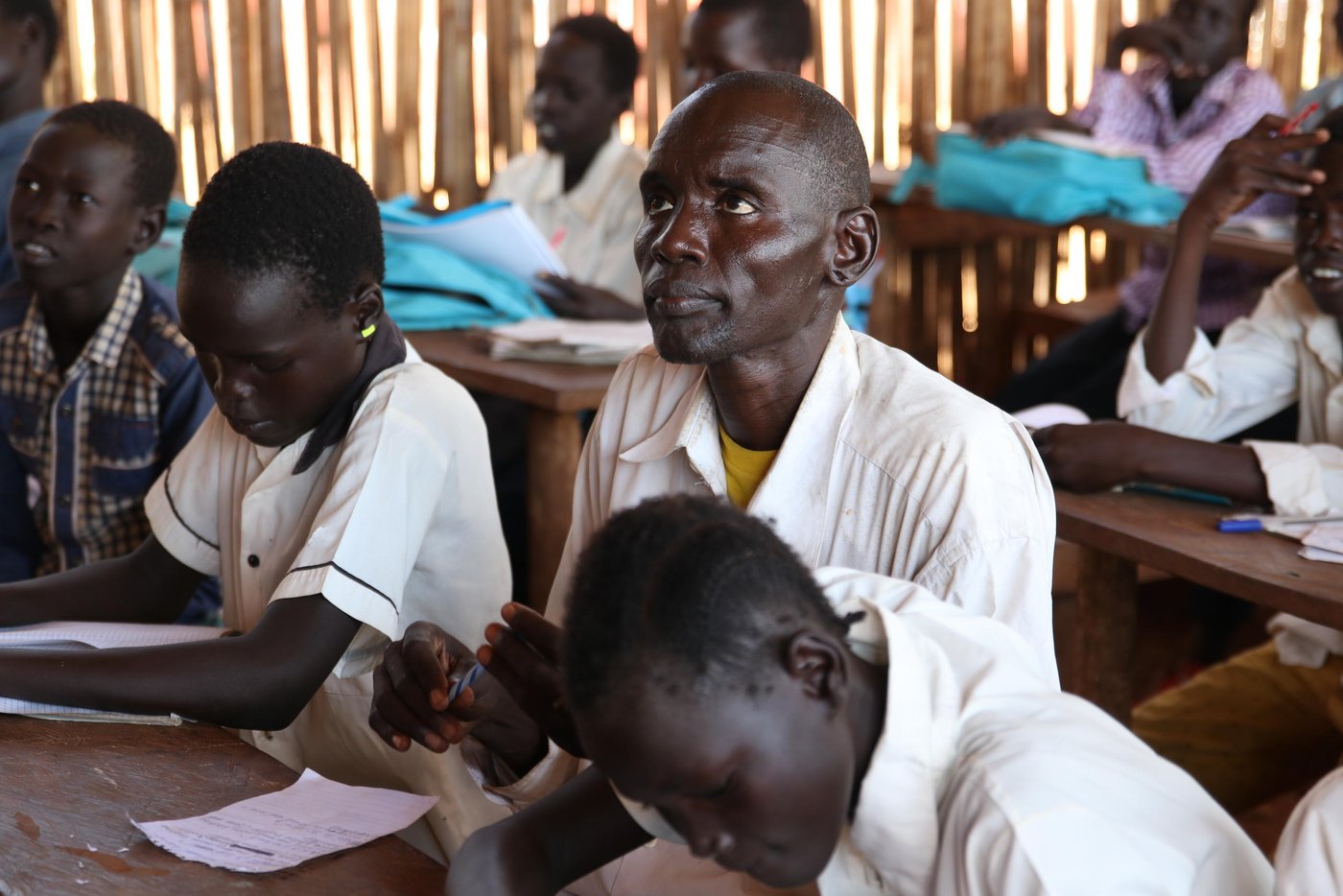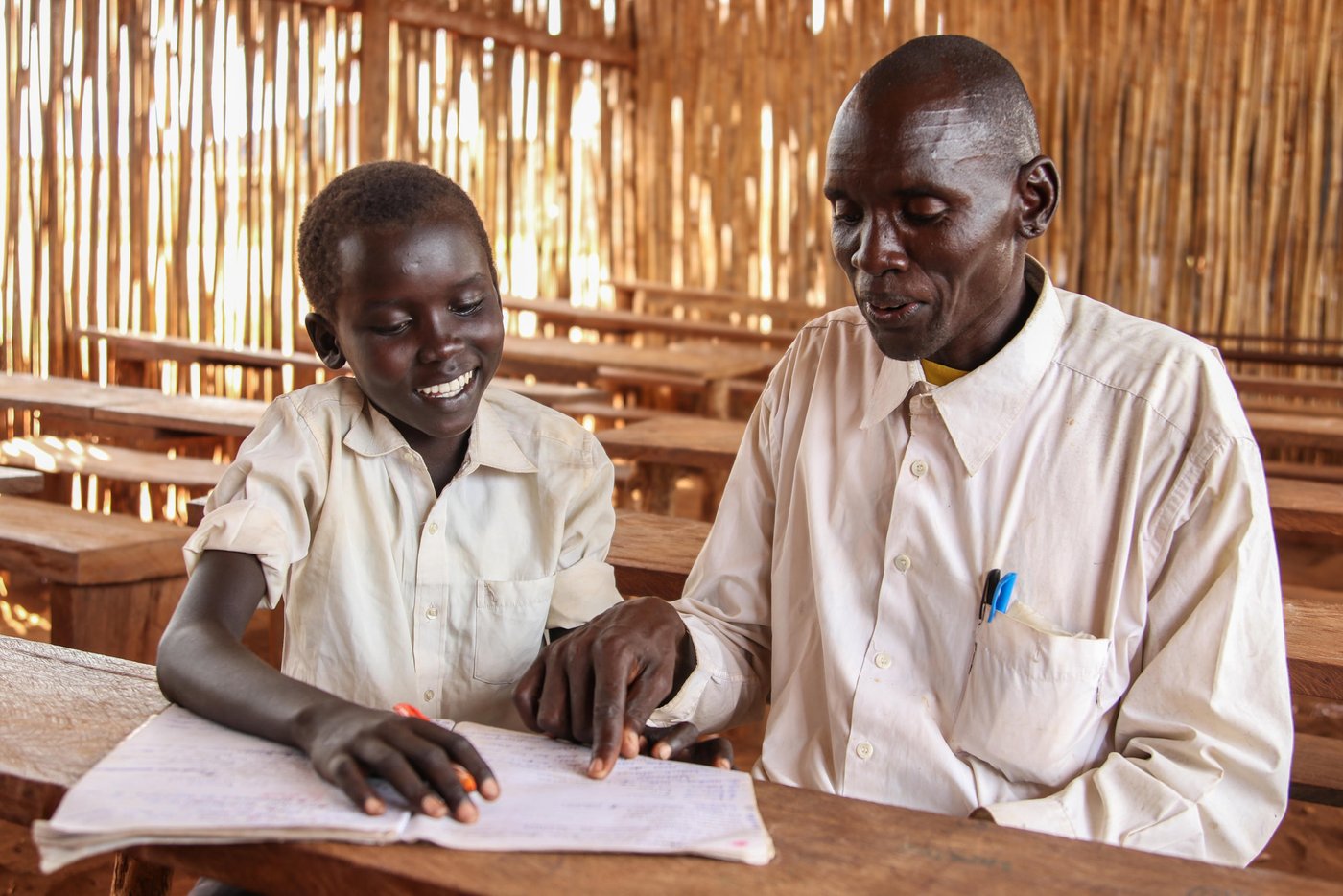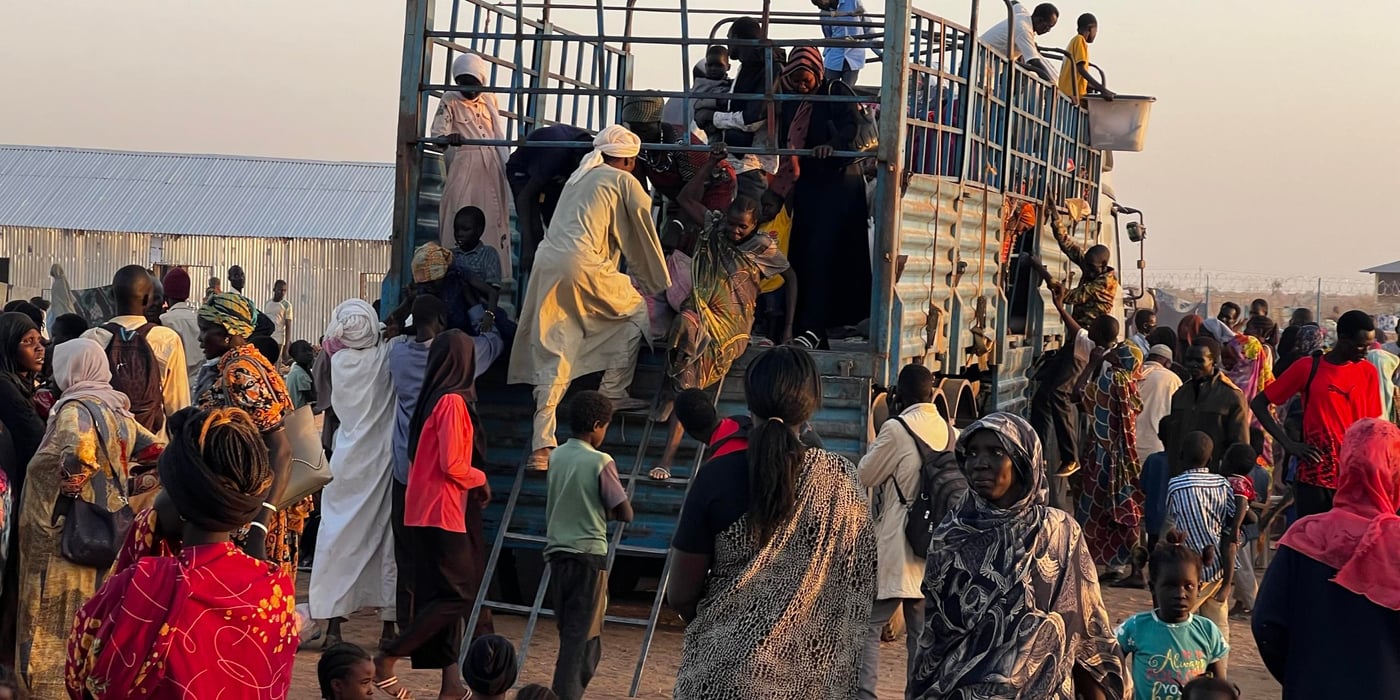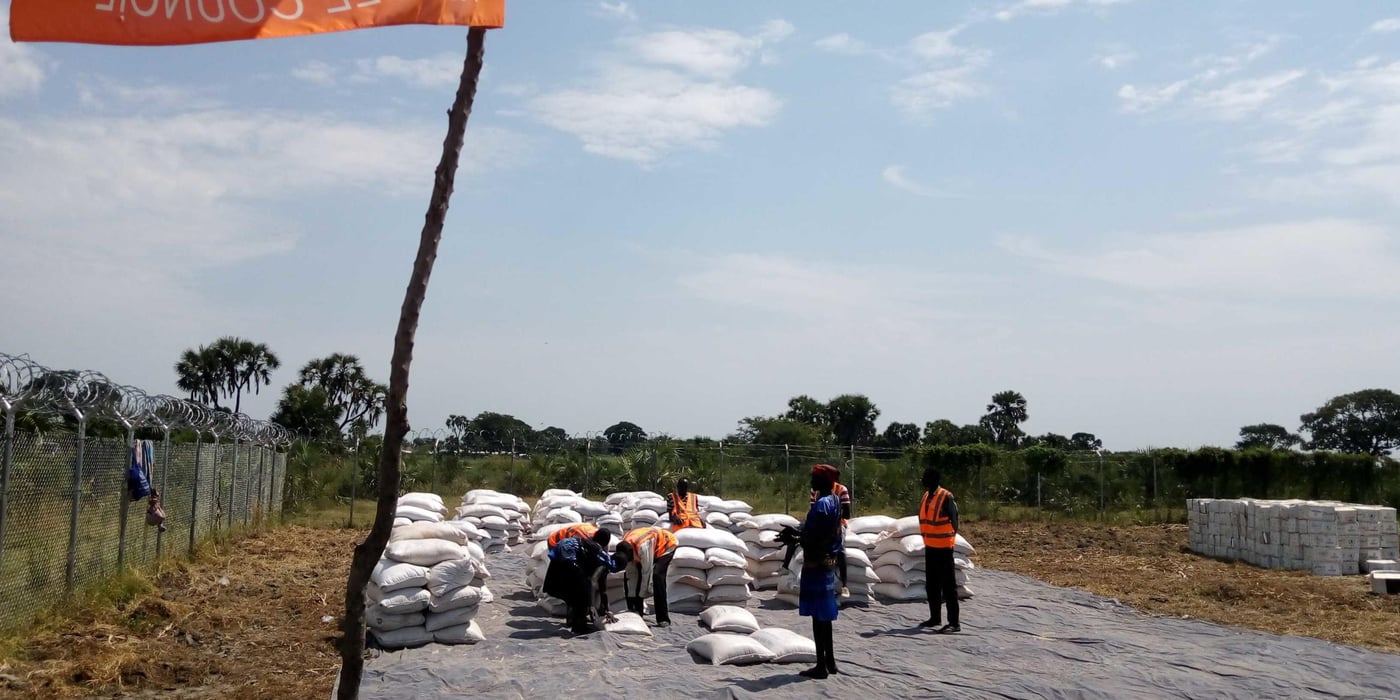
Simon is one of many children who has witnessed the terrible atrocities of South Sudan’s armed conflict. The murder of his mother and brother has haunted the young boy, who started having night terrors.
“I have seen many bad things happening. Sometimes I have nightmares that my father is killed.”
Determined to make his son feel safe, Daniel decided to enroll at his young son’s school. “This way, I can watch over him,” he says.

Two violent conflicts
After South Sudan gained its independence from Sudan in 2011, people could finally start to recover from Africa’s longest-running civil war. Only two years later, a new, violent conflict broke out in the world’s youngest country.
Today, many families go hungry and nearly 7.1 million people live on the brink of famine. The ongoing conflict has also forced over 4.1 million people to flee from their homes.
Simon and his father now live in a displacement camp close to South Sudan’s capital Juba, where the United Nations offers protection to civilians.

Father and son – and schoolmates
Daniel was a businessman before the war. Although he never learned how to read or write, the thought of going to school never crossed his mind. But standing idly by with his son living through trauma was not an option.
“Simon used to wake up at night, crying from terrible nightmares,” Daniel says, and explains how Simon would often get into trouble in school. “He was traumatised.”
The 41-year-old man enrolled at Hope primary school, in a class one school year below his son. This way, he thought, he would be able to help Simon focus on his future.
Today he barely leaves his son’s side. Daniel shares a bed with Simon to make him feel safe at night. Every morning, they walk to school together, hand in hand. In return, Simon eagerly helps his father with his homework.
“Now when I go to school with him, he is feeling better and concentrating in class,” he says, “I am very proud of my son.”

Simon still has nightmares, but not as often as he used to. Now, he even has some good dreams.
“Sometimes I dream that my father has bought me a school uniform and a phone.”
Top of his class
Violent conflict has deprived about 2.2 million children of their primary education in South Sudan. Simon is one of the few pupils who has made it back to a classroom. Today, he is almost fluent in English and is at the top of his class at Hope primary school.
Our country team constructed the school in 2014 to give people trapped in the conflict a chance to continue their education. We have trained the teachers at the school and provide a safe learning environment for the children.
“School is the most important thing in my life right now,” says Simon, who dreams about becoming a doctor. He wants to help rebuild the war-torn country when peace returns.
My mother and brother were killed. I am still alive.Simon, 11 years old.
While the warring parties signed a peace agreement in June this year, many still fear that the population of South Sudan has yet to see an end of fighting.
But Simon has hope. “My mother and brother were killed. I am still alive,” he says.
“I want to live in peace and continue my education.”



